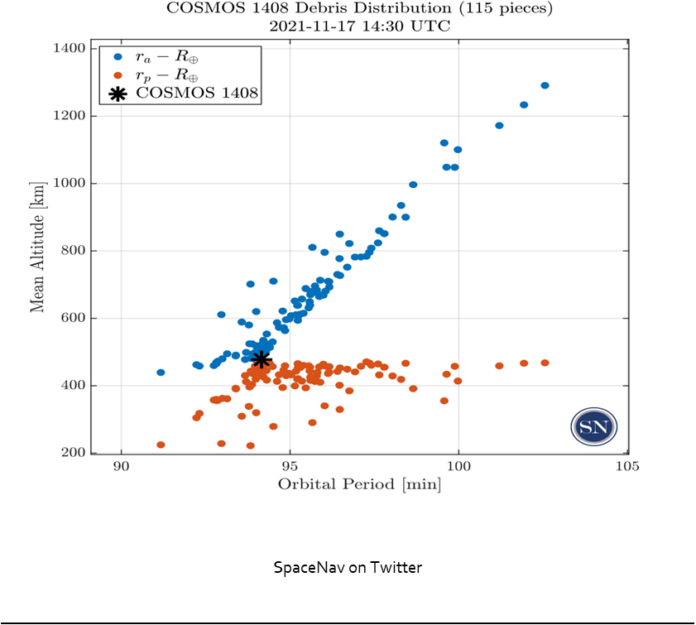By Kate Powell
On November 15th, 2021, the Russian government blew up their own satellite, the Cosmos 1408. The debris caused by the explosion has already endangered the lives of astronauts in outer space. Following the explosion, astronauts aboard the International Space Station (ISS) received commands to find shelter in case of collision with oncoming space debris from the satellite. The ISS was unharmed, but this crisis serves as a warning of what similar decisions could mean for the future of satellites orbiting our Earth.
The reason for the destruction was due to Russia’s testing of its anti-satellite (ASAT) weapon, an instrument which can rupture satilletes in low-Earth orbit. Russia’s tests with the ASAT are not uncommon, but the action of destroying a satellite is unorthodox. By demolishing the defunct satellite, Russia has contributed fifteen hundred pieces of detectable orbital debris, along with likely hundreds of thousands additional pieces, too small to be tracked. This not only contributes to the vast amount of space junk already orbiting Earth, but jeopardizes the lives of astronauts and the existence of commercial, domestic, and international satellites.
Debris orbits the Earth at speeds of roughly 17,000 miles per hour. These objects pose a grave concern to the survival of satellites, which, if hit by a piece only a few inches in diameter, could fracture the precarious balance of its mechanics. If too much debris accumlates, low-Earth orbit might be uninhabitable for any spacecraft, let alone astronauts.
Russia is not alone in its actions. For the past two decades, China, India, and the U.S. have contributed to the accumulation of debris by blowing up domestic satellites. And the effects of this destruction are impossible to ignore. Only last week, debris from China’s 2007 weapons test nearly collided with the ISS.
The United States has openly described Russia’s actions as “reckless and irresponsible,” stating that Russia is “willing to jeopardize long-term sustainability of outer space and imperil the exploration and use of outer space by all nations.” Russia’s decision continues to exacerbate the tense relations between both countries. The Defence Minister of Russia has defended his country’s actions by claiming that “the fragments that formed do not pose any threat to space activity.”
Aside from affecting international affairs, the destruction of the Cosmos 1408 has done irrevocable damage to the low-Earth orbit by further contributing to already existing space debris. This continued build up of waste threatens existing satellites and the existence of the entire low-Earth orbit for the international space community.

